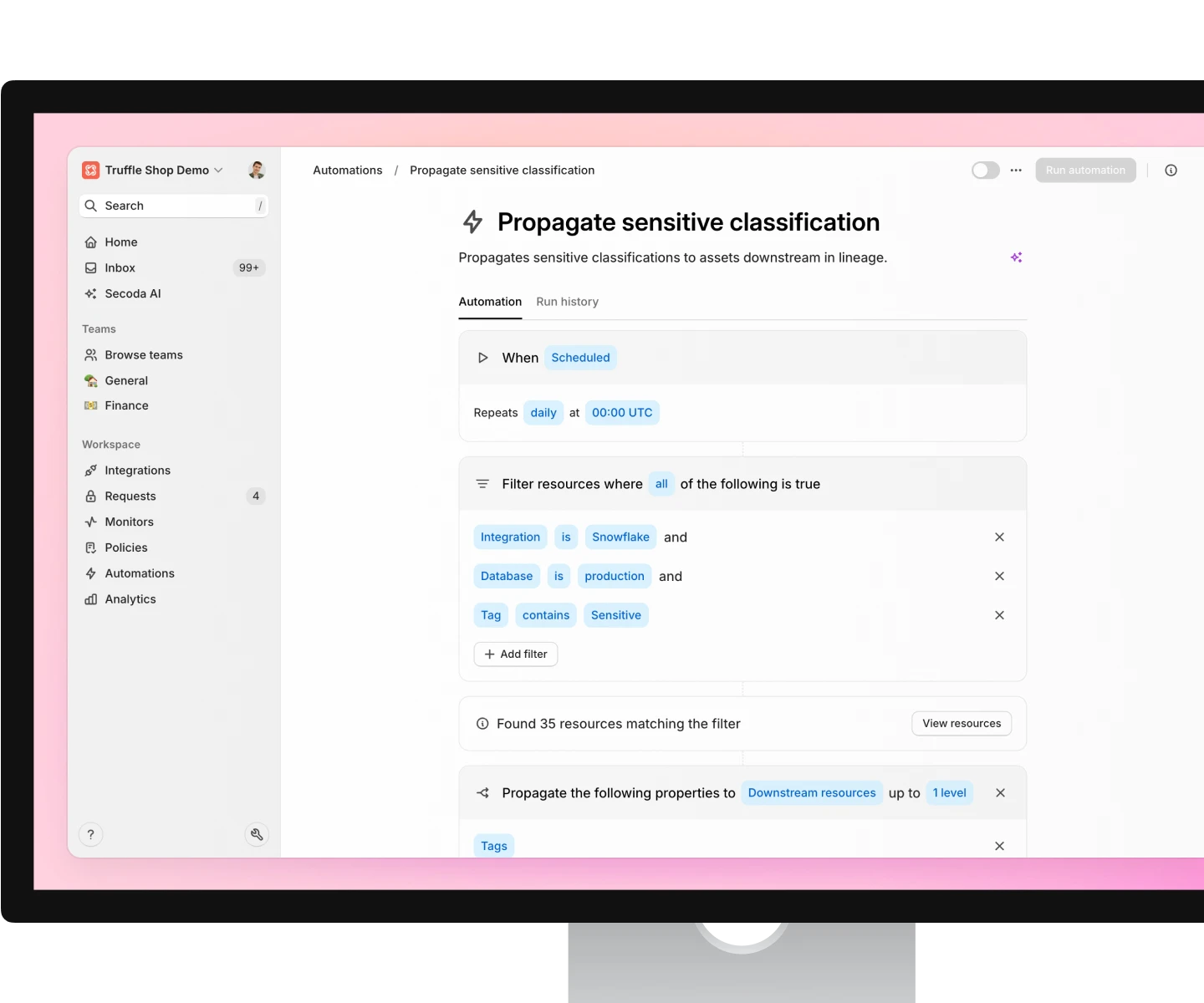Powered by enterprise data governance and context across your entire data stack, Secoda delivers trusted answers fast and at scale.


Secoda connects directly to your data sources to understand lineage, documentation, and metadata and deliver context-aware AI built to scale.

















Secoda is uniquely built on a foundation of governance, metadata, lineage, and documentation to power context-aware outputs. Use AI agents for accurate, secure answers at scale.
Learn moreOrganizes and enrich metadata to ensure your AI outputs are precise, useful, and actionable. Secoda consolidates metadata into one actionable, always-updated control panel.
Gain clear visibility into the usage, performance, and dependencies of every query in your data stack. Catch slow-running queries before it’s too late, freeing up resources and cutting costs.
Detect issues across your data to safeguard analytics and ML outputs. Create comprehensive monitors for proactive visibility into anomalies, costs, job performance, and more.
Easily scale your governance program. Perform bulk updates, tag PII data, manage tech debt, build custom integrations, identify the least used resources, and more.













Secoda upholds industry-leading security standards while being user-friendly, fast, and intuitive.




